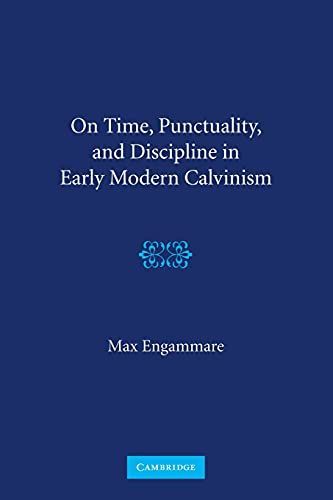
On Time, Punctuality, and Discipline in Early Modern Calvinism
In On Time, Punctuality, and Discipline in Early Modern Calvinism, Max Engammare explores how the sixteenth-century Protestant reformers of Geneva, France, London, and Bern internalized a new concept of time. Applying a moral and spiritual code to the course of the day, they regulated their relationship with time, which was, in essence, a new relationship with God. As Calvin constantly reminded his followers, God watches his faithful every minute. Come Judgment Day, the faithful in turn will have to account for each minute. Engammare argues that the inhabitants of Calvin's Geneva invented the new habit of being on time, a practice unknown in Antiquity. It was also fundamentally different from notions of time in the monastic world of the medieval period and unknown to contemporaries such as Erasmus, Vives, the early Jesuits, Rabelais, Ronsard, or Montaigne. Engammare shows that punctuality did not proceed from technical innovation. Rather, punctuality was above all a spiritual, social, and disciplinary virtue.